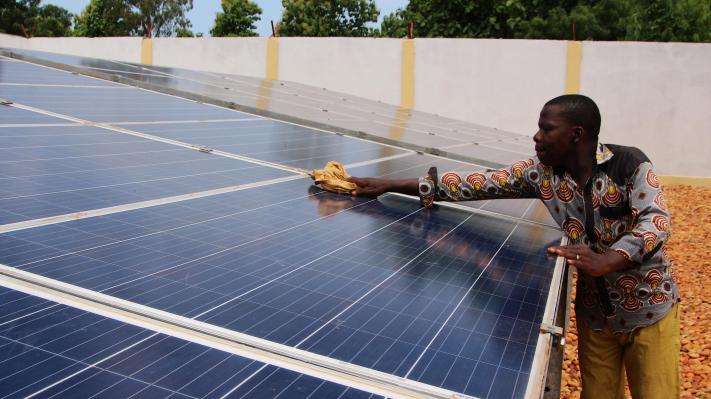How do you attract the attention of a prince? Aside from being Meghan Markle, of course. One answer came recently in the form of Prince Harry’s backing of a new initiative designed to make offsetting the carbon from your airline flights a properly mainstream idea.
For Harry, the initiative had a double whammy. It might finally make carbon offsetting cool, especially if the royals and the celebs are doing it. And it had the added bonus of taking the heat off royals for jetting around the world (sorry!).
But the Travalyst initiative doesn’t stop at offsetting. It will also address conservation, environmental protection and expanding local community economic development by encouraging sustainable tourism practices across the travel industry. And it’s backed by Booking.com, Ctrip, Skyscanner, TripAdvisor and Visa.
The initiative hints at a range of future climate initiatives, now that the issue is firmly on the global agenda after a wave of public demonstrations such as the Climate Strikes started by schoolgirl Greta Thunberg.
The climate is now firmly on the global agenda, but is there really such as thing as “climate tech”?
After all we already have biotech, HealthTech, FinTech. InsurTech, AdTech and AgTech, so why not ClimateTech and what are its investment prospects? What would distinguish it from, say, CleanTech?
Well, whereas CleanTech has traditionally been known in the field of energy generation, such as solar, battery and hydro, ClimateTech could perhaps be defined as data-driven products aimed at addressing the risk and exposure to the effects of climate change.
In fact, ClimateTech, is not some obscure version of CleanTech or GreenTech. Evidence that it’s on the rise comes in the form of a new ClimateTech Wiki, for instance. ClimateTech is all about address both mitigation of the effects of the climate crisis and adaptation/resilience technologies.
So first of all, let’s talk about investment going into energy resilience.
The billion-dollar Breakthrough Energy Ventures fund for distributed generation and other energy tech has been backed by Reliance’s Mukesh Ambani, Amazon’s Jeff Bezos, former New York City mayor Michael Bloomberg, Virgin’s Richard Branson, Alibaba’s Jack Ma, and SoftBank’s Masayoshi Son.
Founded in 2016, this past August the fund announced it was expanding its portfolio of startups to fight climate change. To be eligible, startups have to showcase a scientifically sound technology that has the potential to reduce annual global greenhouse-gas emissions by at least 500 million metric tons.
Unlike most venture funds, BEV is a “patient capital” fund which is fine with its investments not providing a return for up to 20 years.
It has backed, for instance,
• Arnergy: A Nigerian startup that deploys solar-power solutions for small businesses to provide reliable electricity.
• Boston Metal: A Boston-based startup that uses electricity, instead of coke, to convert iron ore into iron.
• Kobold Metals: A San Francisco-based startup that uses artificial intelligence to accelerate the search for ethical sources of the metals, like cobalt, needed to make lithium-ion batteries.
• Max: A Nigerian ride-sharing app that deploys two-wheeled motorcycles to move people in cities more safely. They appeared at TechCrunch Battlefield Nigeria.
• Malta: A Boston-based startup that has developed a way to store renewable electricity in the form of heat and cold.
You get the idea.
But Gates is not stopping there. In September this year he said it’s time to redirect solar and wind subsidies. Why? Because costs aren’t likely to drop much further and be believes other areas are in far greater need of support, including grid energy storage, offshore wind parks, as well as tools that could cut greenhouse-gas emissions in sectors other than electricity, such as agriculture, cement, and steel.
This therefore suggested that startups addressing those areas – think sequestering carbon in cement for instance – should be ripe for venture investment, especially with the support of government subsidies to kick-start the R&D.
Another exciting area of ClimateTech is “Climate risk analytics”. This is investing in the data and the analytics around climate change.
In July, Moody’s acquired Four Twenty Seven, giving the rating agency access to a giant database of climate change risk analytics, signally a shift in how markets price risks related to climate change,
While Four Twenty Seven wasn’t a venture-backed company, and competed with the likes of Jupiter Intelligence, Earth Networks, and Planalytics (B2B), it’s easy to imagine a data start-up playing in this arena and attracting the interest of similar large data aquifers.
Another area is agriculture. While it’s easy to put this into the AgTech box, the area is highly related to climate change.
In early 2019, VC platform AgFunder released its 2018 investing report which showed a $6.4 billion increase — or more than 44% — in venture investments globally over 2017.This covered startups in such areas as biotechnology, robotics and innovative food.
In April, Rio Investment Partners launched a new venture capital fund focused on Agri-Food investing across the North American ag-tech and food-tech value chain. And Both Avrio Capital and Anterra Capital have become key players in this space.
ClimateTech will become a crucial investment space, not least because the planet depends on it. So watch out for SaaS, APIs, IoT, satellites and sensors that all contribute to this fight going forward.
